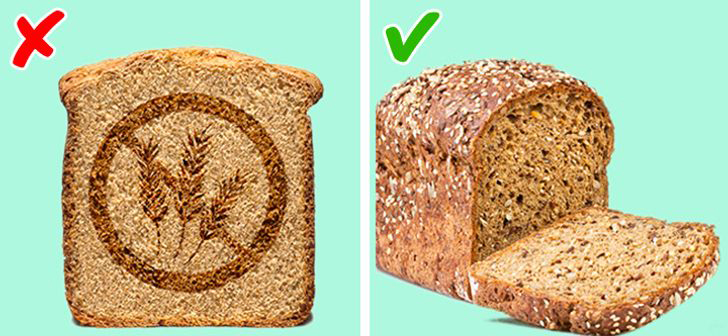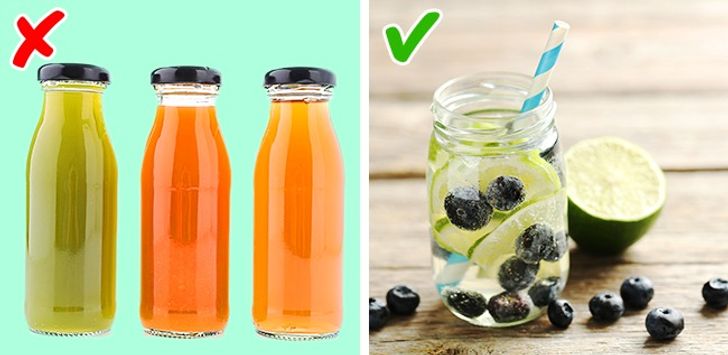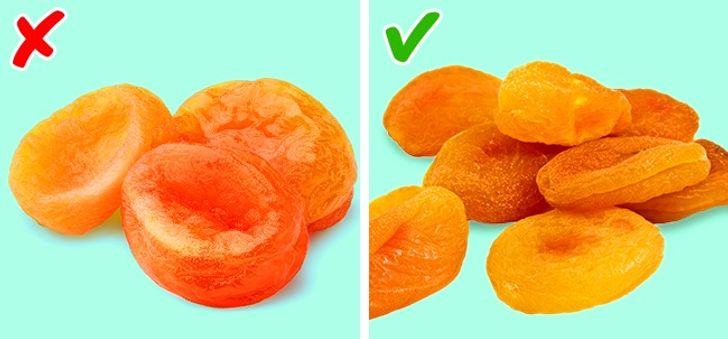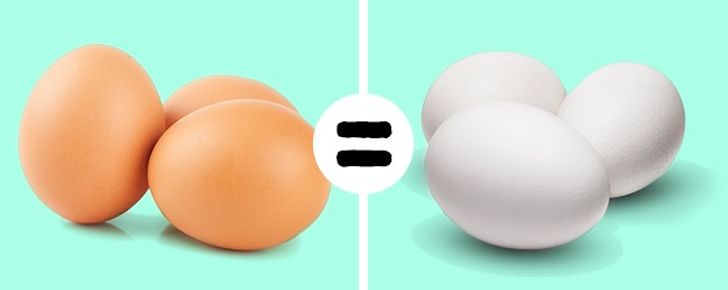By changing to a healthy lifestyle, many people cannot achieve their goals. Perhaps the reason is in their confidence that they have chosen the correct eating strategy. But if we take a closer look, we will discover that much of our knowledge about health products is actually false.
We support people’s fight for self-perfection and we want to help them improve their knowledge of healthy eating. Finally, we will finish with the 8 most popular myths about healthy eating.
Most Common Healthy Eating Mistakes
8. We Choose Organic Products

Organic products are believed to be healthier and safer than ordinary products, but there is no scientific evidence to support this.
When growing these products, farmers do not use synthetic pesticides. Instead, they are replaced by natural pesticides and their side effects have been poorly studied.
Also, the “Eco” or “Natural” mark on the packaging does not always mean healthy food. Sometimes it is just a marketing ploy used to increase sales.
When buying these products, it is important to pay attention to the content, origin, and appearance.
7. We Prefer Products Without Gluten

Recently, products containing gluten were considered harmful. There are people who really need to follow a gluten-free diet because they have been diagnosed with celiac disease. But only about 1% of people have this disease.
In all other cases, there is no scientific evidence to show that staying away from gluten improves our well-being.
According to the latest research, the rejection of gluten increases the risk of cardiovascular disease because whole grains are eliminated from our diet.
6. We Buy Low-fat Products
In search of a healthy lifestyle, many people choose low-fat products. But very few of us realize that by reducing the level of fats, manufacturers compensate the content of their products with other components to improve the taste. For example, sugar, flavors, stabilizers, and trans fats, which are harmful to our health.
Products with normal fat content are necessary for a balanced and healthy diet. It is only necessary to exclude fats for real medical reasons. In all other cases, it will be sufficient to reduce the percentage of fats in a product.
5. We Drink Fruit Juices

Fruit juices contain a lot of sugar and, at the same time, have no dietary fiber. This can lead to increased appetite, overeating, and weight gain.
Juice does not satisfy our hunger or thirst. And that fact makes it a little different from sweet soft drinks.
Instead, it is better to opt for a whole piece of fruit or essence water with fresh fruit.
4. We Eat Energy Bars
These bars are good for a quick snack on the go. They are sold in the health and diet departments of supermarkets. But are they really healthy?
Most bars contain sugar, chocolate, caramel, artificial flavors, and other additives. They are no different from ordinary sweets when it comes to the volume of sugar, while the amount of calories in them equals a full lunch.
Don’t be lazy and spend more time eating well. If you want something sweet, try some dark chocolate. This will be good for your health and also satisfy your sweet tooth.
3. We Prefer To Eat Dried Fruits

The usefulness or harm of dried fruits depends directly on the conditions in which they were cooked and stored. As a rule, manufacturers process fruits with a chemical composition before drying, which helps extend the shelf life of fruits, but decreases their beneficial characteristics.
Dried fruits are good and healthy if you cook and dry at home yourself. When choosing them in a store, it is best to buy dried fruits that do not look attractive, are not shiny, and are difficult to touch.
2. We Choose Eggs With A Brown Shell

The myth that brown shell eggs are better has long been popular. The size and color of an egg depend on the breed of the chicken, while the color of the yolk indicates what the chicken was eating for lunch.
The main rule for choosing eggs should be the storage conditions and their appearance. The safest option is clean, crack-free eggs stored in the refrigerator.
1. We Drink Sports Drinks
Due to a close connection between sport and a healthy lifestyle, sports nutrition is often perceived as healthy. However, sports drinks do contain sweet soda water, as well as corn syrup, artificial food additives, and colorings.
Sports drink manufacturers recommend quenching thirst with their products during training. But that does not quench your thirst and, in fact, decreases the efficiency of your physical exercise. A sports drink made with your own hands is a good way to avoid this.
Is there something we forget? Tell us in the comments!


